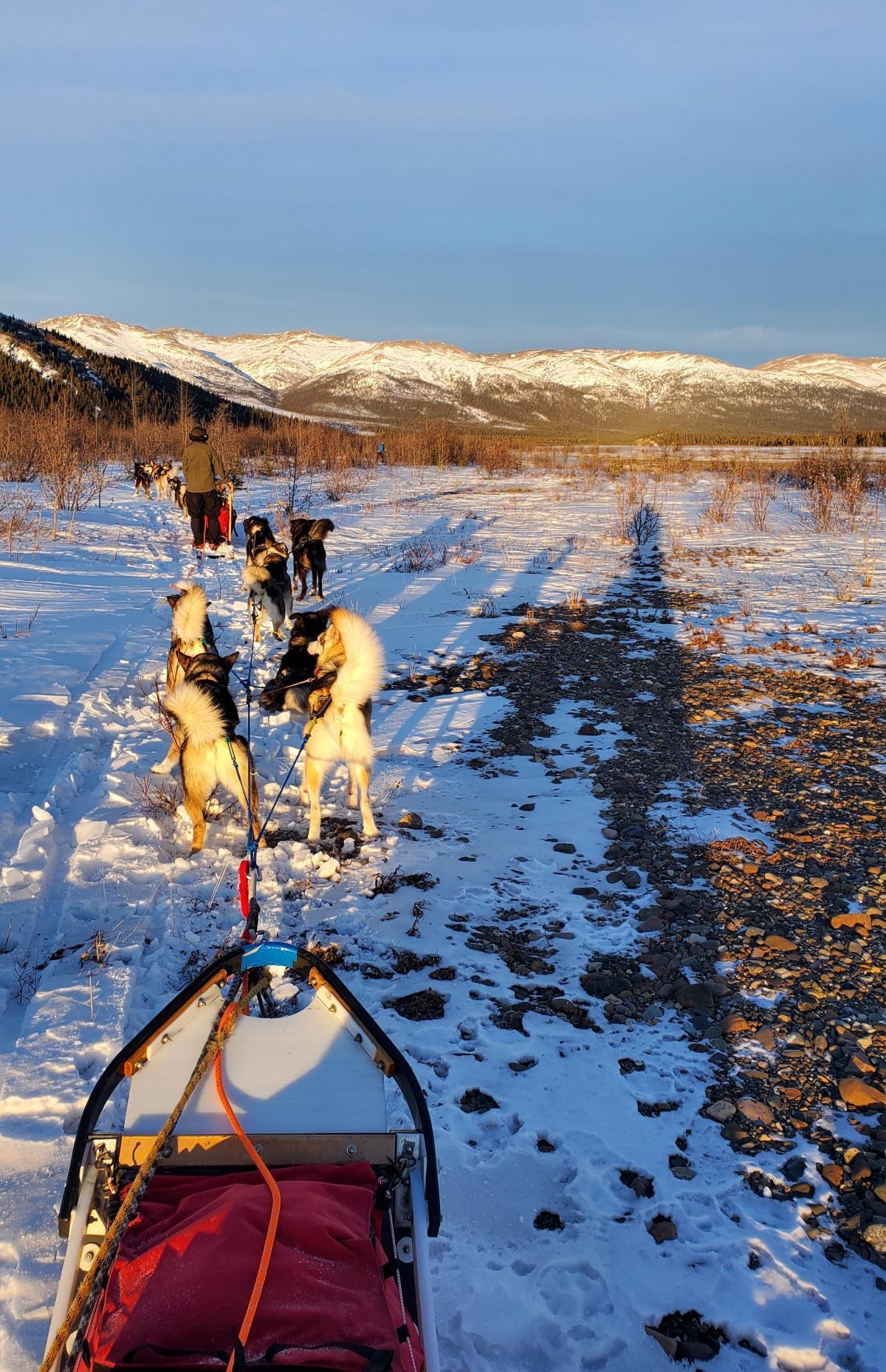When we first spoke with Caleb Miguel Awe last November, he admitted to some trepidation. “Nobody likes 40 below,” he noted.
Caleb was just beginning his second straight winter as a sled dog intern at Denali National Park and Preserve, so he was already acquainted with Alaska’s oft-harsh climes. More recently, we caught up with him on the heels of an eight-day backcountry patrol, during which he and his companions traveled by sled. Or tried to.
“We were headed to the toe of East Fork Glacier,” he says, “to see if conditions were good enough to retrieve some glacier stakes,” which are used to measure melt, or ablation. “We spent our days mushing from one ranger’s cabin to the next. We’d sleep there for the night with the dogs, and then we’d move on to the next one.
“Unfortunately, we were unable to make it very far. There was very little snow and most of the ice was unreliable so we made the decision to turn around.”
Denali is located some 200 miles north of Anchorage and its “canine rangers” have helped personnel safely navigate this vast park for the past century. The huskies’ instincts are tuned to the ever-changing environment and, unlike mechanized transport, the dogs never seem to break down.

Along with fellow SCA members Mitch Flanagan and Lida Wise, Caleb cares for 28 dogs, maintains the kennels, and conducts field patrols and studies. “If I were a permanent employee, this would be the pinnacle,” he states, but as an intern he is focused on learning as much as possible from his colleagues. “Human and dog,” he points out.
Teams consist of at least three mushers (a combination of experienced park rangers and SCA interns) and up to eight or more dogs per sled, plus safety gear, food, water, and a means of communication. Caleb has worked extensively with race dogs in the past, and puts the patrol dogs in a class by themselves.
“They’re bigger. They’ve got a lot more power. The dogs are happiest when the snow is deep and the trail just feels so new. It’s incredible to watch these dogs breaking trails like it’s nothing!”
When asked if there were surprises beyond the relatively mild weather, Caleb mentions the pace of wilderness. “Things seem to move a little slower and smaller details about the environment and the people around you stick out more.” That, he adds, can sometimes lead to jarring returns to base. “Last year, we came home from a patrol to news of a pandemic. This year, we came home to news of an insurrection.”
Such bulletins only make Caleb more grateful to be stationed in what he calls “one of the most serene and undisturbed places in the world.”